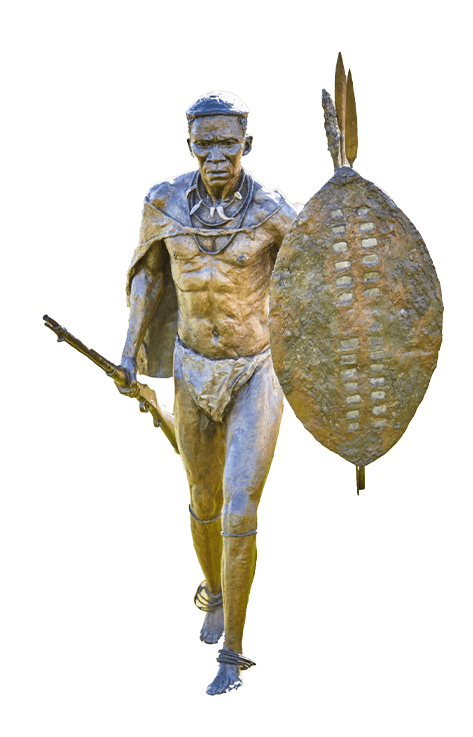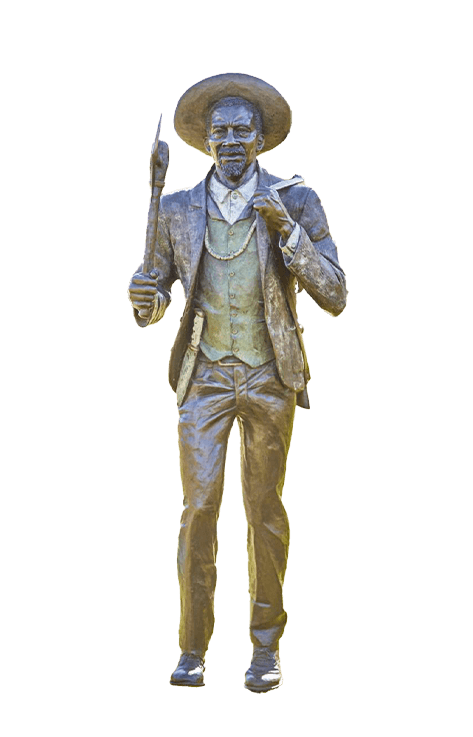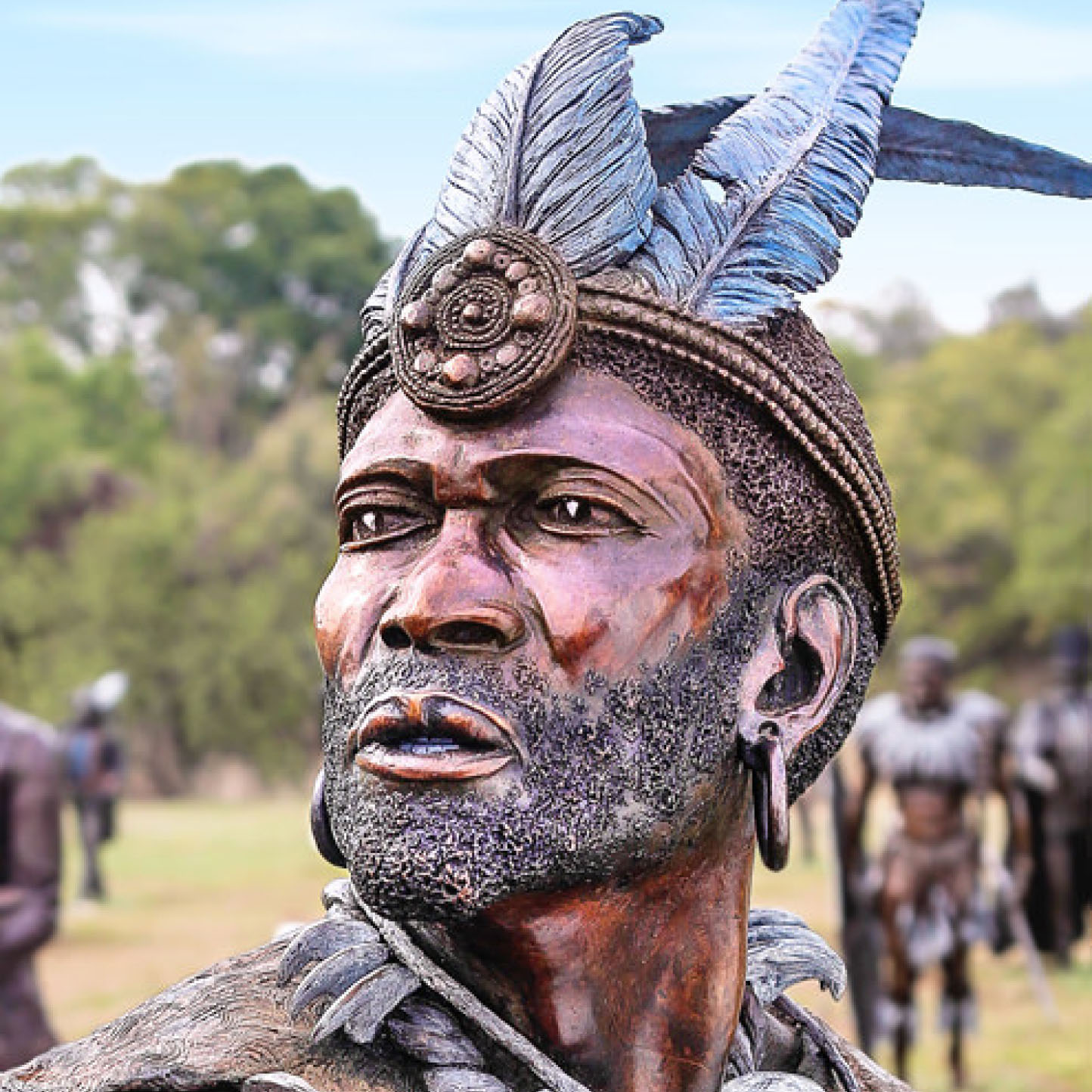
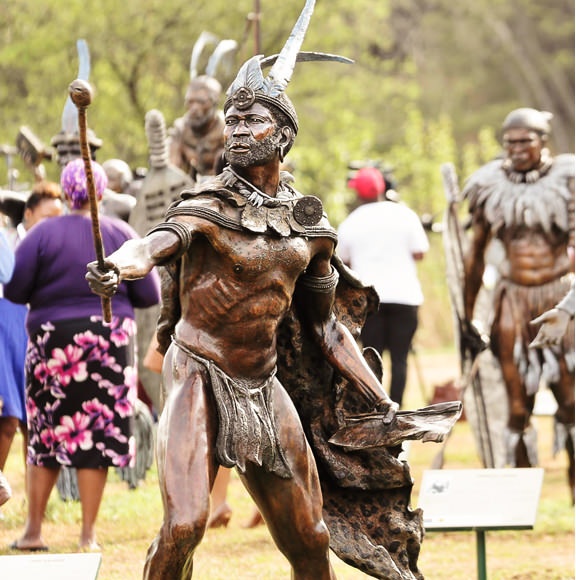
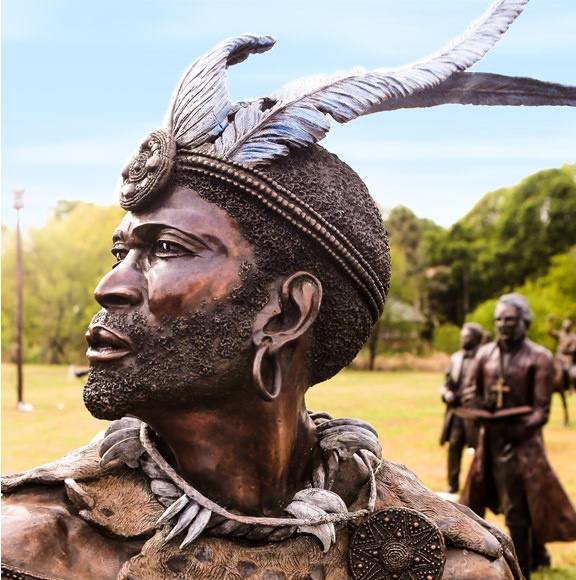
"Why is the government so anxious to take immediate control of my people, seeing that I have agreed to come under government and divide my authority?"
- Chief Dalasile, ’Probert's report’, 16 December 1876
Chief Dalasile
1820 - 1895
Chief of amaQwathi of Ngcobo
Nothing is known about the beginning of the reign of Chief Dalasile, son of Fubu, nor can any exact date be given for Dalasile's accession to Chief of amaQwathi.
It is estimated that Fubu died in 1860, leaving Dalasile to succeed him when the latter was about forty years old.
In contrast to Fubu's reign, characterized by warfare, Dalasile sought his clan's independence by passive resistance and continuing a policy of 'good neighbourliness' with abaThembu. The Qwathi had been welcomed by a succession of Thembu kings after their arrival in the lands of abaThembu. They had agreed to give the Thembu kings 100 head of cattle as tribute for allowing them to settle, while allowing them to maintain their separate identity and autonomy.
Ngangelizwe became the Thembu king in 1863 and soon sought British protection against his enemies. Dalasile, fearful of the loss of autonomy, opposed this and continuously fought British attempts to assume control over his people. By 1876 however, Dalasile reluctantly agreed to submit to British control. The colonial authorities divided the region into four magisterial districts, each with their own magistrate, serving under a chief magistrate.
Dalasile followed a policy of passive resistance until 1880 as he struggled with his subservient status under the guidance of an officer of the colonial government.
Dalasile led his clan against colonial domination during the Qwathi Rebellion of 1880 -1881. After five months of fighting, the less resourced amaQwathi were forced to surrender. Many fighters, starving and exhausted, surrendered, but Dalasile fled into the coastal forests.
Colonially appointed headmen, most from non-Qwathi communities, were imposed as chiefs. Dalasile surrendered three years later. Though he was not imprisoned he was deposed as chief.
Dalasile was recognized as a nationalist who had been prepared to fight colonialism with all the means at his disposal. He died of small pox in 1895, marking the end of the resistance movement among amaQwathi.
